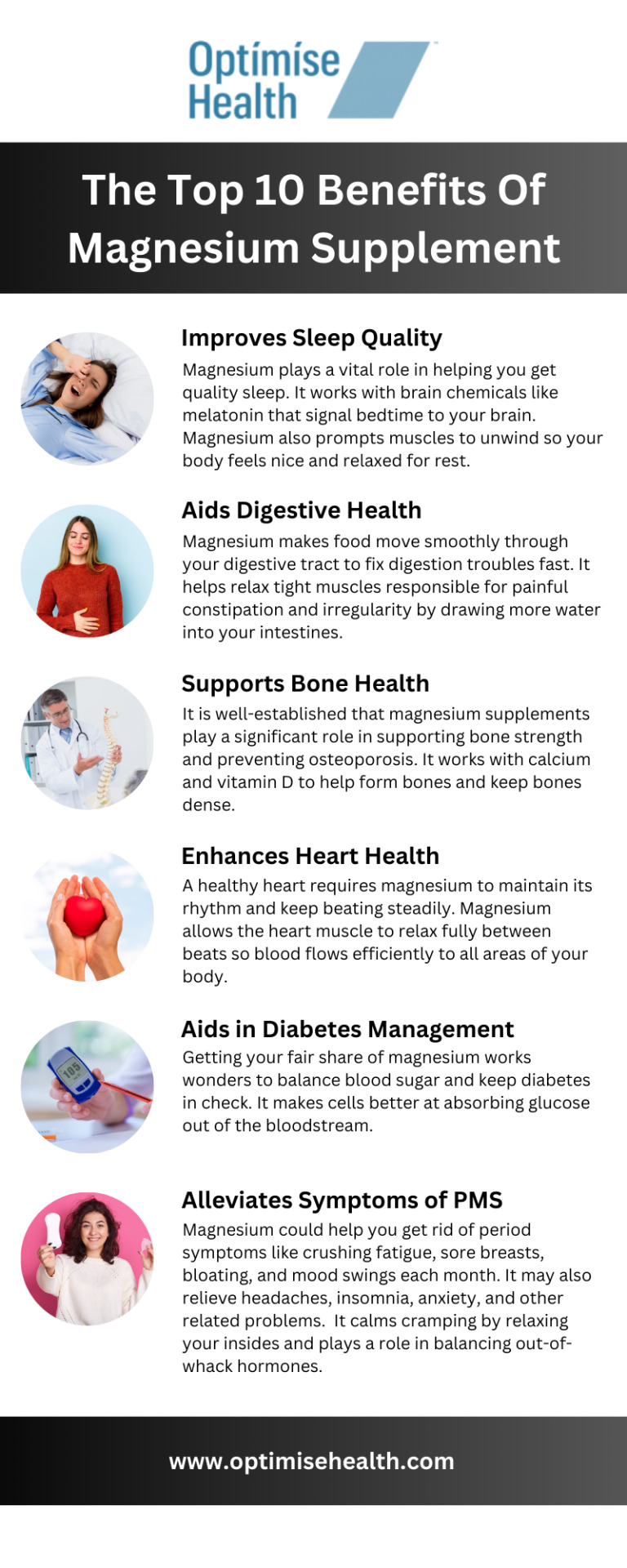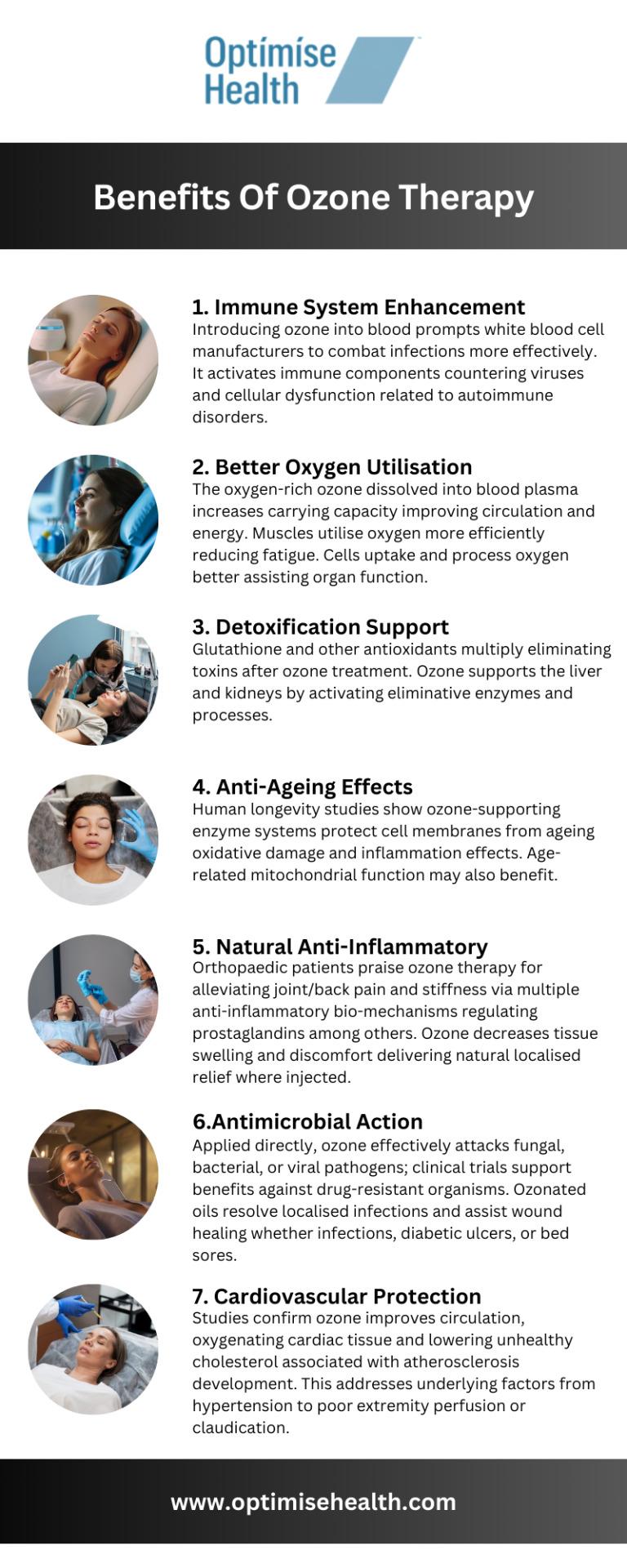Text

Explore the top 10 benefits of magnesium supplements. From improved sleep to muscle relaxation. In this infographic as shared by the expert at Optimise Health.
0 notes
Text

Dive into this infographic from Optimise Health to discover the top benefits of ozone therapy.
0 notes
Text
0 notes
Text
0 notes
Text
0 notes
Text
0 notes
Text
0 notes
Text
0 notes
Text
0 notes
Text
Are you suffering from Hypothyroidism? How to identify and look for help.
What is the Thyroid and it does?
The thyroid is an organ in the neck responsible for regulating metabolism by controlling the rate of oxygen and calorie conversion to energy. The metabolic rate of every cell in the body is controlled by thyroid hormones, particularly T3. The thyroid produces the hormones T3 and T4 in response to stimulation by thyroid stimulating hormone (TSH), which is produced in the pituitary gland. The thyroid requires iodine and L-tyrosine to synthesize T3 and T4.
Hypothyroidism is a condition where the thyroid does not produce enough thyroid hormone, significantly slowing metabolism. Hypothyroidism has detrimental effects on the body. Fortunately, thyroid function tests (TSH, T3, and T4) can help identify an underlying thyroid condition as well as help direct proper treatment and improve symptoms.
Suboptimal thyroid function is common and can contribute to troublesome symptoms like weight gain and fatigue. Since thyroid hormones influence the metabolic activity of every cell, less-than-optimal thyroid function can profoundly affect the body and the mind.
What are main Signs and Symptoms of Hypothyroidism?
Fatigue
Weakness
Sensitivity to cold
Constipation
Unexplained weight gain or weight loss
Dry skin and hair (and/or hair loss)
Muscle cramps
Depression
If left untreated, hypothyroidism can lead to goiter, cardiovascular disease, and dementia.
What are Conventional Medical Treatments for Hypothyroidism?
Thyroid hormone replacement therapy
Desiccated thyroid extract
The Primary Thyroid Hormones: T4 and T3
Thyroxine, or T4, is produced solely by the thyroid gland and is the more common thyroid hormone in the blood, but triiodothyronine, or T3, is the more biologically active thyroid hormone. T3 is formed by the removal of one of T4’s four iodine atoms. This process is mediated by selenium-dependent enzymes.
T4 is found in the body in two forms: bound and free. Free T4 is not bound to any proteins and is able to enter into body tissues. Bound T4 is attached to proteins that render it biologically inactive. Approximately 99% of T4 in the body is in the bound form.Very small changes in the amount of carrier proteins will affect the percentage of unbound hormones.
High blood levels of T4 typically indicate hyperthyroidism and low levels are associated with hypothyroidism.
Why to look for a nutritionist? Diet plays an important role!!
Because the body needs key nutrients such as iodine to make thyroid hormone, and iodine is relatively uncommon in the standard Western diet, people who follow a salt-restricted diet may become iodine deficient. Vegetarians are also at risk of developing iodine deficiency, especially if they eat food grown in low-iodine soil. Vegans who avoid sea vegetables are also at higher risk.
The upper intake level of iodine for adults is 1,100 mcg per day.
Some foods contain substances that may reduce the utilization of iodine or even reduce TSH function. These include cabbage, Brussels sprouts, and other cruciferous vegetables, as well as millet and soybeans. For those with hypothyroidism, it may be advisable to consume these raw, foods in moderation. I also recommend avoiding caffeine and gluten and limiting sugar, alcohol, and dairy to help control symptoms.
Some foods and medications may interfere with the absorption or action of thyroid hormone medications. For example, too much dietary fiber can impair absorption of thyroid hormone medication. In addition, walnuts, calcium supplements, coffee, aluminum-containing foods, iron supplements, calcium carbonate, soy, and possibly grapefruit juice may all decrease the absorption of thyroid hormone prescriptions.
So which Nutrients Support Thyroid Health?
Nutrients such as iodine, selenium and zinc help support thyroid function.
Consult your physician and nutritionist today to find better holistic approaches to manage hypothyroidism! Don’t waste your quality of life.
Adriana Taralli N.D. MAS ETH Zürich Health and Nutrition DHEST
0 notes
Text
0 notes
Text

Explore the essentials of IV therapy. Get informed about its benefits, side effects, and more. In this Infographic as Shared by the experts at Optimise Health.
0 notes
Text
0 notes